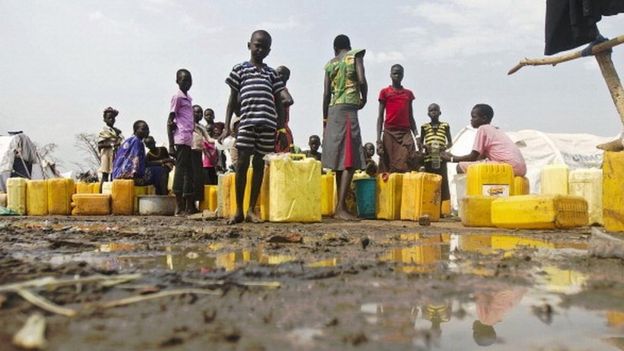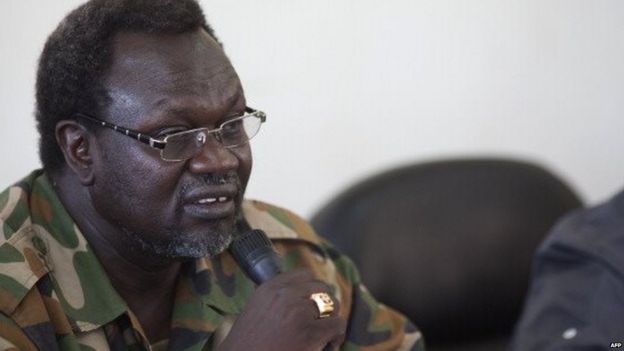South Sudan President Salva Kiir signs peace deal
By BBC News
South Sudan's President Salva Kiir has signed a peace deal with rebels after a threat of sanctions from the UN.
He told those gathered for the signing ceremony in the capital, Juba, that he had "reservations" about how the mediation was conducted and some of the clauses in the compromise deal. Rebel leader Riek Machar signed the deal last week but Mr Kiir refused.
It is meant to end months of brutal civil war and will see Mr Machar return as vice-president.
Fighting between forces loyal to the two men over the last 20 months has forced more than 2.2 million people from their homes in the world's youngest state, which broke away from Sudan in 2011.
The leaders of Kenya, Uganda and Ethiopia, who all helped mediate the negotiations, witnessed the signing.
The BBC's Emmanuel Igunza in Juba says that before the signing, President Kiir spent hours in a closed-door meeting with the regional leaders.
Afterwards, he gave an address at Freedom Hall, speaking at length of his unease about the deal and saying he wanted these reservations to be on record, our correspondent says.
Key points of peace deal:

- Fighting to stop immediately. Soldiers to be confined to barracks in 30 days, foreign forces to leave within 45 days, and child soldiers and prisoners of war freed
- All military forces to leave the capital, Juba, to be replaced by unspecified "guard forces" and Joint Integrated Police
- Rebels get post of "first vice-president"
- Transitional government of national unity to take office in 90 days and govern for 30 months
- Elections to be held 60 days before end of transitional government's mandate
- Commission for Truth, Reconciliation and Healing to investigate human rights violations
Five obstacles to lasting peace
During his speech, South Sudan's president mentioned areas such as the ambiguous structure and command of the South Sudan forces once the transitional government takes office in 90 days.
He also had issues about the power-sharing arrangements.
Fresh fighting that has erupted in the oil-rich town of Bentiu was a clear indication that rebels did not respect the deal they had so recently signed, he added.
At least seven ceasefires have been agreed and then shattered - sometimes within hours.


Mr Machar denied the charges, but then mobilised a rebel force to fight the government.
Earlier in a Security Council briefing, the UN's humanitarian chief Stephen O'Brien warned that conditions in South Sudan were deteriorating, saying he had heard multiple accounts of atrocities, including people being burned in their homes.
"The scope and level of cruelty that has characterised the attacks against civilians suggests a depth of antipathy that goes beyond political differences," he said.
A US-drafted resolution would have imposed an arms embargo and targeted sanctions unless Mr Kiir signed.


0 Comments:
Post a Comment
Subscribe to Post Comments [Atom]
<< Home